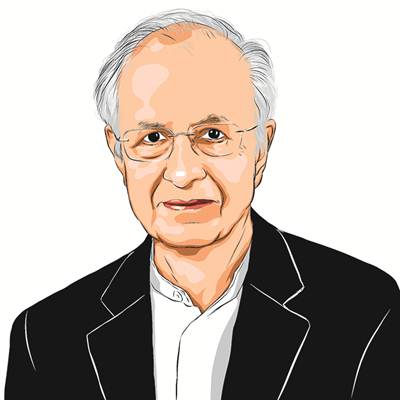Opinion The Republic of institutions
Dont have stale debates about socialism. Focus on the future and reinvent Indias public institutions.
Professors Jagdish Bhagwati and Amartya Sen are positioned on two sides of a Big Fight on the Internet: could India have improved human development indicators until it had increased economic growth following the 1991 reforms? Bhagwati is firm that economic growth must come first,to provide the money required for social side improvements. The other view is that since human development is an input for economic growth,it must have precedence.
This is a chicken-and-egg debate and misses the real issue: the ineffectiveness of the countrys programmes to improve education,health,and social infrastructure. If 85 per cent of money that was spent for public benefit was wasted prior to the economic reforms,as Rajiv Gandhi said,and continues to be wasted even afterwards according to Rahul Gandhi,attention should be focused on the design and condition of the pipes. Not on whether there is enough water to fill the overhead tank,which is what some economists are debating.
Institutions and organisations are the machines and pipes that convert money into results. They must be redesigned to produce more bang for the buck and better outcomes for citizens. How to do this would be a more useful debate.
One school of thought proposes that the quality of public services will improve by handing them to the private sector,which,with its focus on efficiency and profits,will cut out the waste. The same school of thought also believes that environmental damage is caused by a tragedy of the commons when no one owns the water,the forests,and the atmosphere. It believes that creation of private property rights (including tradable rights to pollute the atmosphere) will induce human beings to behave more responsibly.
The basic premise of this school is that a market in which self-interested persons can trade,will always produce good outcomes. It believes that institutions for progress must be founded on principles of private property rights and competition.
A few weeks ago,as Indian and US business leaders discussed innovation,someone asked a question: why do Indians want to re-invent the wheel? Solutions have already been discovered elsewhere. Indias problem is the implementation of solutions,he said. Here is the answer. There are two reasons why India must find new,innovative solutions. The first is that the wheel of progress that has been invented elsewhere has put more pressure on the earth than it can bear. The goal of progress seems to be that all aspire to attain the lifestyle of American consumers. If all the people of the world were to live at the standards of middle-class Americans we would need five earths to support everyones needs. But we have only one earth. So it is imperative we find a better and more sustainable way for economic growth.
The second reason is that,as the wheel of progress has moved,it has been leaving too many too far behind. This is a problem in China,as it is in India,and lately it has been perceived as a problem even in the US. Economic growth is essential of course,so that there is enough for all. For hundreds of years,the way the wheel of progress has moved in all nations,is first growth and then,with a lag,more inclusion.
However,two new forces have increased the impatience with the usual pace of the trickle-down in this traditional model of growth.
One of these forces,gathering strength across the world in the last 20 years,is a consciousness of universal human rights. These,expressed in the UN Millennium Development Goals,are basic: the right to food,health,sanitation,and education. The other force,of even more recent origin,is the ubiquity of information,through 24/7 media,cell phones,and the Internet. People know what others have. They wonder why it should be their destiny to wait while others already enjoy the fruits of progress.
These two forces,stirred up further by rapidly proliferating numbers of civil society organisations,have made people much less patient than they used to be with the pace of the trickle-down. Therefore,for more rapid inclusion and sustainability,we need innovation in the wheel of progress.
Institutions are the wheels on which the cart of progress moves. The need to tune up government is evident. And the need to redesign market-and-property based institutions to meet challenges of inclusion and sustainability is evident too: in increasing public interest in new concepts of business accountability,social entrepreneurship,producer companies,and so on.
When Elinor Ostrom was awarded the Nobel Prize in economics in 2009,many wondered what the relevance of her work on community-based institutions was to economics. Its time has come. As she said during her recent visit to India,the solution is not only the government,nor only the market,and neither only the community. Because good institutions for managing shared resources,efficiently as well as fairly,require blended capabilities: public-
private-people partnerships.
Innovations are required,too,in global institutions to improve collaboration and regulation,and in institutions that are trying to deliver on the ground.
This Republic Day,let us remember: India is a huge experiment in human progress. A very large and very diverse country,it has chosen to be democratic before it is
economically developed. It must go past the stale debate about capitalism verssus socialism. Innovation in institutions is the most important agenda for Indias leaders to achieve its aspirations of more inclusive,more sustainable,as well as faster growth.
The writer is a member of the Planning Commission
express@expressindia.com


